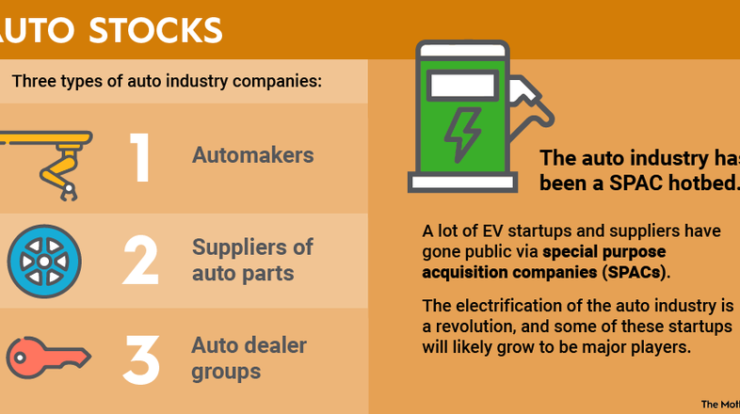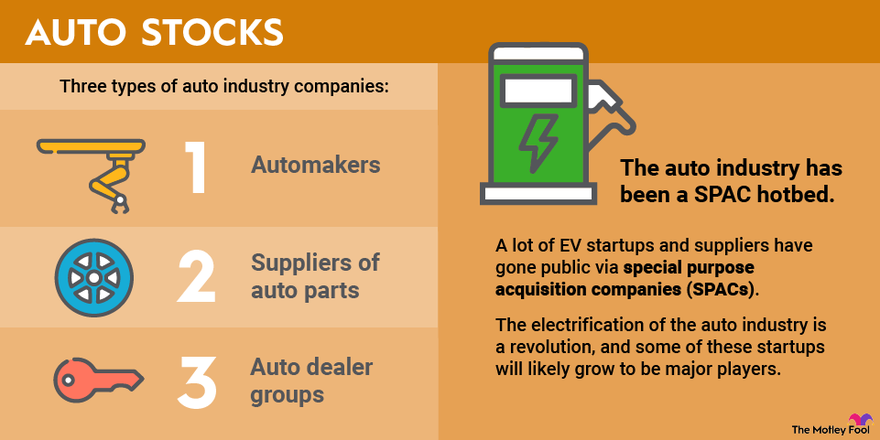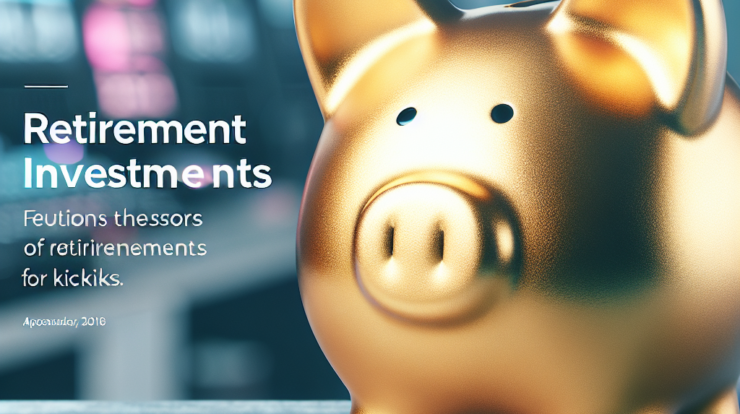
Are you ready to plan for a secure and prosperous retirement? Look no further than retirement investments in the booming car manufacturing industry. With the increasing demand for vehicles worldwide, investing in car manufacturing companies allows you to capitalize on this thriving sector while securing your financial future. This article will provide you with valuable insights into the potential benefits and considerations of retirement investments in car manufacturing, helping you make informed decisions and maximize your returns. Don’t miss out on this exciting opportunity to pave the way towards a comfortable retirement. Let’s explore the world of retirement investments for car manufacturing together.

This image is property of cdn.ramseysolutions.net.
Retirement Investments for Car Manufacturing
1. Overview of Retirement Investments for Car Manufacturing
Retirement investments are an essential part of financial planning for individuals working in the car manufacturing industry. As you progress in your career and approach retirement age, it is crucial to have a solid investment strategy in place to ensure a comfortable and secure future. The car manufacturing industry, like any other field, has its unique considerations when it comes to retirement investments. Understanding these considerations can help you make informed decisions and maximize your potential returns.
1.1 Importance of Retirement Investments
Retirement investments play a crucial role in ensuring financial security during your golden years. With the uncertainty of government-funded pensions and the changing landscape of retirement benefits, it has become increasingly vital to take responsibility for your own retirement planning. By investing in various retirement vehicles, you can build a nest egg that will provide a stable income stream after you retire, enabling you to maintain your lifestyle and enjoy your newfound freedom.
1.2 Unique Considerations for Car Manufacturing Industry
The car manufacturing industry has its unique set of considerations when it comes to retirement investments. Economic factors, market volatility, and technological advancements can significantly impact this sector. Additionally, changing consumer preferences and the transition towards electric vehicles can create both challenges and opportunities for retirement investors in the car manufacturing industry. It is essential to stay informed about industry trends and adapt your investment strategy accordingly to ensure long-term success.

This image is property of industrywired.com.
2. Types of Retirement Investment Options
There are several retirement investment options available for individuals working in the car manufacturing industry. Exploring these options can help you choose the ones that align with your goals and risk tolerance. Here are three popular retirement investment vehicles:
2.1 401(k) Plans
A 401(k) plan is a retirement savings plan sponsored by your employer. It allows you to contribute a portion of your salary into a tax-advantaged account, typically with a variety of investment options. One of the significant advantages of a 401(k) plan is the potential for employer matching contributions, which essentially gives you free money. These plans often provide a convenient and accessible way to save for retirement, making them a popular choice among car manufacturing employees.
2.2 Pension Funds
Pension funds are traditional retirement plans that are managed by employers on behalf of their employees. In the car manufacturing industry, pension funds have been a staple retirement benefit for many years. These funds provide a guaranteed retirement income, usually based on years of service and salary history. However, the prevalence of pension funds has declined in recent years, and they are less common among new car manufacturing employees.
2.3 Individual Retirement Accounts (IRAs)
Individual Retirement Accounts, commonly known as IRAs, are personal retirement savings accounts that offer tax advantages. These accounts allow you to contribute a certain amount of money each year, subject to annual limits, and benefit from tax-deferred or tax-free growth. IRAs provide flexibility and control over your investments, making them an attractive option for those who desire more autonomy in their retirement planning.
3. Retirement Investment Strategies for Car Manufacturing
Developing a solid retirement investment strategy is crucial in ensuring a secure financial future. Here are some key strategies to consider when planning your investments in the car manufacturing industry:
3.1 Diversification
Diversification is a fundamental concept in any investment portfolio. By spreading your investments across different assets, sectors, and regions, you can reduce the overall risk and increase the potential for returns. In the car manufacturing industry, diversification can involve investing in various companies within the sector, as well as exploring opportunities in related industries, such as electric vehicle component manufacturers or renewable energy providers.
3.2 Long-Term Planning
Retirement investments are typically long-term endeavors, and it is essential to plan accordingly. By taking a long-term approach, you can ride out short-term market fluctuations and benefit from the compounding effect of your investments. As a car manufacturing employee, you may have access to retirement plans, such as 401(k) plans or pension funds, that offer long-term investment options. It is crucial to align your investment strategy with your retirement timeline to ensure sufficient funds are available when you need them.
3.3 Employer Matching Contributions
If your employer offers a 401(k) plan with matching contributions, take full advantage of this benefit. Employer matches are essentially free money, and failing to contribute enough to receive the full match is like leaving money on the table. Carefully review your employer’s matching policy and strive to contribute at least enough to maximize the matching contributions. This can significantly boost the growth of your retirement savings over time.

This image is property of m.foolcdn.com.
4. Benefits and Drawbacks of 401(k) Plans
401(k) plans offer many advantages as retirement investment vehicles for individuals in the car manufacturing industry. However, it is essential to consider both the benefits and drawbacks before committing to this investment option.
4.1 Advantages
One significant advantage of 401(k) plans is their tax-advantaged nature. Contributions made to a traditional 401(k) are typically tax-deductible, meaning that they reduce your taxable income in the current year. Additionally, any investment gains within the account are tax-deferred until withdrawal. Another advantage is the potential for employer matching contributions, which can significantly boost your retirement savings. Overall, 401(k) plans provide a convenient way to save for retirement through automatic contributions and a broad range of investment options.
4.2 Disadvantages
Despite their many advantages, 401(k) plans have some potential drawbacks. One limitation is the contribution limits, which may restrict your ability to save a significant amount of money each year. Additionally, early withdrawals from a 401(k) plan before the age of 59½ may be subject to penalties and taxes, potentially impacting your financial situation. It is essential to carefully consider your personal financial needs and goals before relying solely on a 401(k) plan as your primary retirement investment vehicle.
5. Advantages of Pension Funds
While pension funds are becoming less common in the car manufacturing industry, they still offer some significant advantages for employees fortunate enough to participate in them.
5.1 Guaranteed Retirement Income
One of the main advantages of pension funds is the provision of a guaranteed retirement income. Unlike other retirement investment vehicles, such as 401(k) plans or IRAs, pension funds offer a stable and predictable income stream during retirement. This can provide peace of mind and financial security, knowing that you have a specific amount of money coming in regularly, regardless of market fluctuations.
5.2 Professional Management
Pension funds are typically managed by professional investment managers who have expertise in managing large investment portfolios. This professional management can result in more robust returns and better risk management compared to individual investors. By relying on professionals to handle the day-to-day operations and investment decisions, pension fund participants can reap the benefits of their expertise without the need for extensive knowledge or time commitment.

This image is property of d9s1543upwp3n.cloudfront.net.
6. Individual Retirement Accounts (IRAs) for Car Manufacturing
Individual Retirement Accounts (IRAs) are popular retirement investment options due to their flexibility and tax advantages. Car manufacturing employees can benefit from two common types of IRAs:
6.1 Traditional IRAs
Traditional IRAs allow you to contribute pre-tax income, which reduces your taxable income in the year of the contribution. The contributions and any investment gains grow tax-deferred until withdrawal. Withdrawals from traditional IRAs are generally subject to income tax in the year of withdrawal. Traditional IRAs can be an excellent option if you anticipate being in a lower income tax bracket during retirement.
6.2 Roth IRAs
Roth IRAs function differently from traditional IRAs. Contributions to Roth IRAs are made with after-tax income, meaning they do not reduce your taxable income in the year of contribution. However, the key advantage of a Roth IRA is that qualified withdrawals in retirement are tax-free. Roth IRAs can be a smart choice if you anticipate being in a higher income tax bracket during retirement or if you value tax-free withdrawals.
7. Tax Considerations for Retirement Investments
Tax considerations play a significant role in retirement investments. Understanding the tax implications of different retirement vehicles can help you maximize your savings and minimize your tax obligations. Here are a few tax considerations specific to retirement investments:
7.1 Tax-Deferred Growth
Certain retirement investment options, such as 401(k) plans and traditional IRAs, offer tax-deferred growth. This means that any investment gains within these accounts are not subject to taxes until you make withdrawals during retirement. By deferring taxes, you can potentially benefit from compounding growth and maximize the growth of your retirement savings.
7.2 Tax Deductible Contributions
Contributions to some retirement accounts, such as traditional IRAs and 401(k) plans, may be tax-deductible. By deducting these contributions from your taxable income, you effectively reduce your tax liability in the year of contribution. This can result in immediate tax savings and potentially allow you to contribute more towards your retirement savings.
7.3 Roth IRA Tax Advantages
Roth IRAs provide tax advantages in retirement rather than upfront tax savings. Withdrawals from Roth IRAs are tax-free as long as certain conditions are met. This can be advantageous if you expect to be in a higher income tax bracket during retirement or if you anticipate changes in tax laws favoring tax-free withdrawals.

This image is property of www.mirf.co.za.
8. Retirement Investment Tips for Car Manufacturing Employees
As a car manufacturing employee, you can take several steps to optimize your retirement investments and secure a comfortable future. Consider the following tips:
8.1 Start Early and Contribute Regularly
One of the most effective ways to build a successful retirement portfolio is to start early and contribute regularly. The power of compounding allows your investments to grow over time, and the earlier you start, the more time your investments have to compound. Set up automatic contributions if possible to ensure consistent saving throughout your career.
8.2 Take Advantage of Employer Matches
If your employer offers a matching contribution program, make sure to take full advantage of it. This is essentially free money added to your retirement savings, and failing to contribute enough to receive the full match is like leaving money on the table. Review your employer’s matching policy and contribute at least the amount required to maximize the matching contributions.
8.3 Seek Professional Financial Advice
Navigating retirement investments can be complex, especially given the unique considerations of the car manufacturing industry. Consider working with a professional financial advisor who specializes in retirement planning to help you develop a personalized investment strategy, assess your risk tolerance, and ensure that your retirement goals are on track. A financial advisor can provide valuable insights and guidance tailored to your specific circumstances and help you make informed investment decisions.
10. Future Trends in Retirement Investments for Car Manufacturing
Looking towards the future, retirement investments in the car manufacturing industry will be influenced by several trends:
10.1 Impact of Electric Vehicle Transition
The transition towards electric vehicles is creating new opportunities and challenges for retirement investors in the car manufacturing industry. Investing in electric vehicle manufacturers, renewable energy companies, and other emerging technologies within the electric vehicle sector can provide potential for substantial returns. However, it is essential to carefully evaluate investment opportunities and consider the long-term viability and potential risks associated with this rapidly evolving industry.
10.2 Advancements in Auto Industry Technology
Advancements in auto industry technology, such as autonomous vehicles and connected car technologies, have the potential to disrupt traditional car manufacturing. Retirement investors should stay informed about these technological advancements and consider their potential impact on the industry and investment opportunities. This may involve exploring investments in companies involved in research and development within the auto industry technology sector.
In conclusion, retirement investments play a crucial role in ensuring the financial security of car manufacturing employees in their retirement years. By understanding the various investment options, implementing sound investment strategies, and considering the unique considerations of the industry, individuals can build a robust retirement portfolio. It is important to stay informed about industry trends and seek professional financial advice to make informed decisions and maximize the potential for long-term success. Remember, start early, contribute regularly, and take advantage of any employer matching programs. With proper planning and careful consideration, you can secure a comfortable future and enjoy the fruits of your labor during retirement in the ever-evolving world of car manufacturing.









